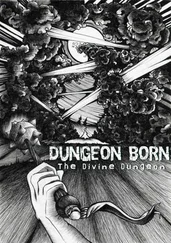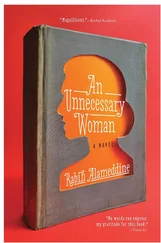“The Americans are so stupid,” he told me. “They all grow up in barns. They’re cow people. Even now, they all have money and things, but they still are stupid. When Sarah went to America, the Americans loved her because she was the greatest star in the world. But they didn’t understand her at all. Sarah was a hard worker. In America, she was doing play after play and she was extremely tired. One time, she got so tired in the middle of the first act of a play, she fainted. The director brought down the curtains to see if she was all right. Being the trooper that she was, when she woke up she wanted to go on with the play. She said she was ready. They raised the curtain, but there was no one in the audience. Thinking the play was over, those dummies had left. The stupid Americans didn’t understand a thing.”
Amal was right about one thing. My grandfather told me so many stories of Sarah Bernhardt, of her awe-inspiring acting, her wonderful sculpture, her devilish tantrums and hysterical rages. He talked of her beauty and charm, of her eyes that borrowed color from the changing light. He talked of having met her as a young boy of eleven and her kindness toward him. He talked of her presence on stage, the brilliance of her personality. He could not stop talking about her infatuation with death, her sleeping in caskets. How she was the only actress in history to have been a success as both Hamlet and Ophelia. He never talked about Damala, the gorgeous, abusive Greek she gave herself to. That I had to find out on my own, how obsessed she became with the man twelve years her junior, their tumultuous marriage, how she let a man with no talent convince her to let him become her lead actor. He never told the story of the Prince de Ligne, the Belgian who seduced her when she was still a young girl, who showed her a different life only to withdraw when she told him she was pregnant. He never mentioned all the men she toyed with, who were so in love with her she kept them on a leash for her entertainment. He never said anything about her pattern of falling in love only with men who could not love her back.
He never once mentioned her son, not how he was born out of wedlock, not how much she loved him.
“She was so skinny at a time when girls were fat,” he told me as I sat on his lap. “You could see her collarbone, just like yours.”
“She’s just like me.”
He traced the jutting collarbone. “You have exactly the same collarbone, deep and capacious. I’m going to start drinking my soup from here.” He bent down wanting to lick my neck and I laughed like crazy.
I was visiting my mother in her New York apartment. She lay back on her divan, enigmatic and morose. She was in a talkative mood for a change.
“Your grandfather was an evil man,” she said without any hint of emotion. “He made my life miserable. Whenever no one was around, he would whisper things like, ‘You may think you have him because you spread your legs, but all vaginas go sour after a while.’ He even called a couple of times and I picked up the phone and bang, he’d call me a whore or a slut. What could I do? I tried telling your father, but he didn’t believe me. There was no one I could talk to. He did not relent, kept going after me again and again. You know, when I heard your father remarried, I was so hurt at first. I wanted his new wife dead. But then I thought, you know, there’s no worse fate I could wish on someone than having that devil for a father-in-law.”
“He did treat her very badly.”
“The worst was after each of my deliveries. Did I ever tell you what he told me after you were born? He and his fucking wife were in the hospital room with me. Your father was in the waiting room playing host with all the visitors. Your grandfather picked you up and said, ‘You know, Janet, I love this girl so much. Do you know why?’ Like an idiot, I asked, ‘Why?’ And he said, ‘I love her so much because she’s the reason I am going to be able to return you to your fucking country.’ ”

Our novel opens with the sound of running water. We are unable to discern clearly at first because we are at a distance. We feel a cold, the cold of low temperatures not that of harsh weather. The visuals are unclear. It is hard to see for everywhere there is white. Snow covers the ground, the trees, every stationary thing. As we get closer, we realize the sound is a waterfall. The sound is concentrated, bowl-shaped. Within ten feet of the waterfall, it is deafening, yet one step farther quiet creeps in.
Hovering above the waterfall, we see that the river is about thirty feet wide. The fall is manmade. No. That is not exactly accurate. The fall is man-aided. The drop has been evened out, but the rocks and the spasmodic fits of water at the bottom show that nature has not been completely vanquished. The white of the water is slightly more colorful, less virginal, than the white of the snow covering the rocks.
It is March in a small town in New Hampshire.
Our river runs through the center of the sleepy town, houses and small buildings on each side. We hear the sound of a miniature snowplow driving along the sidewalk. The street has already been done. Even though the sky is a dazzling blue, not many pedestrians are out. Only one woman steps off the sidewalk onto the road to let the plow through. She smiles at the driver, who stops.
“Hello, John,” she says cheerfully. She is of hardy New England stock, short, no more than five-two or so, we can guess one hundred and sixty pounds, but we can’t be completely sure because of the dumpy gray overcoat she wears. A woolen cap covers her relatively small head, which makes it difficult to figure out her hair color, but we can assume, with some confidence, that it is gray, for she does not seem like the kind of woman who would bother with hair coloring.
“Mornin’, Mary. Turned out a lovely day, hasn’t it?” John sits behind a large bushy mustache and the handlebars of the snowplow. He seems eternally happy, plowing being the perfect job for him, dreaming of motorcycle racing.
“Ah, yeh. They say there won’t be another storm for three days.”
“That’s what they say.”
“Did you see that coat there?” Mary asks, pointing at a couple down below the road watching the waterfall.
“Must be from Boston.”
“Must be. Well, I’d better be getting along. You have a good day, John.”
There you go. We have now been introduced to the coat and the woman wearing it.
If we look down at where sturdy Mary pointed, we see two women below the road, along the promenade, leaning across the metal railing, watching the waterfall. Right away we can tell they are not local, but we are also sure they are not Bostonians either. The coat alone should have been enough of a clue. It is fake fur, ankle-length, hyacinthine, and seems to highlight the woman’s lovely curves as opposed to obfuscating them. She wears purple high-heeled boots with matching mittens. Her hair (we note the absence of any hat, more prima facie evidence she is not local) is a lustrous blue-black, wavy and abundant, dropping an inch past her shoulders. We are observing her from the back, still, almost statuesque, watching the raging waters do battle with the implacable rocks.
The woman standing to her right seems jittery in comparison, shifting her weight from one foot to the other. She moves her head sideways to glance at her companion, as if gauging the other’s feelings. We can tell from the appearance of the woman on the right that she is slightly perturbed. She wears a small black skullcap that barely covers her head. The cap is obviously no match for the temperature. She also wears a parka, which makes her look like the Michelin man, with a warm hood that is not being used. It hangs loosely on her back, barely held on by one button, like a relic about to be discarded. Her hair is recently cut, a short boyish crop, dyed an unnatural red. Her hands are parked in her parka. She has obviously forgotten her gloves.
Читать дальше













